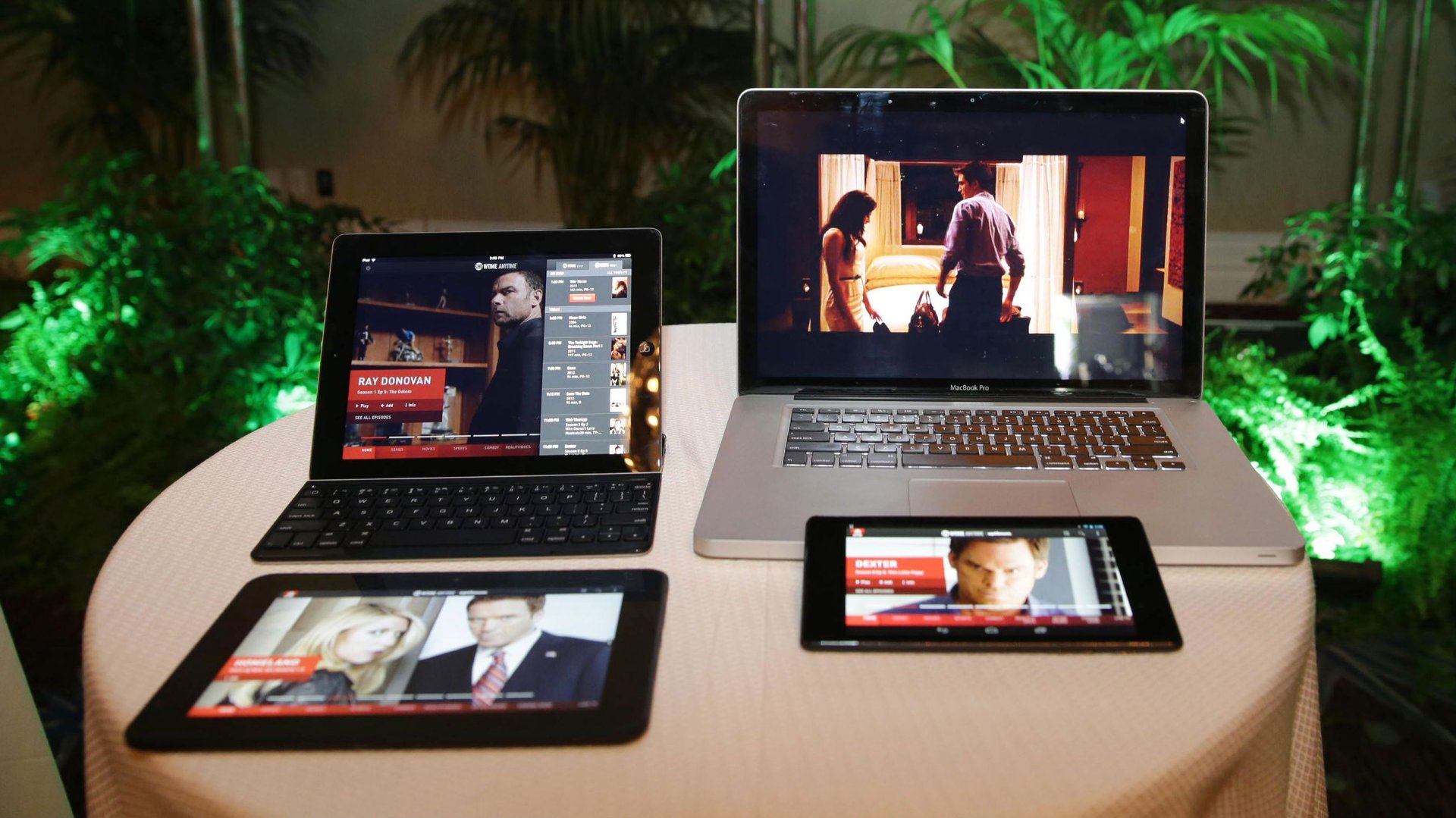The average young American binge-watches TV for five hours straight
Binge-watching has hit critical mass in the US, according to a new study.


Binge-watching has hit critical mass in the US, according to a new study.
Nearly three-quarters—73%—of Americans said they binge-watched videos, either on TV or another device, found a survey by Deloitte, including a staggering 90% of US millennials. And 38% of those millennials also said they binge-watched pretty much every week.
The firm interviewed more than 2,100 Americans, aged 14 and up, for its 11th annual study on US media consumption. The research was conducted by an independent firm last November.
The share of US consumers who binge-watch has creeped up over the last few years, as viewers shift away from live TV toward on-demand content that can be watched at their convenience. Instead of rushing home to watch a popular TV show each week, viewers found they could catch up on entire series in one sitting. “The concept of appointment TV has been replaced in a lot of cases by the concept of binge-watching,” said Kevin Westcott, lead author of the report.
Deloitte defined binge-watching as viewing three or more episodes in a single session. But the respondents usually watched for much longer than that—especially millennials and those even younger than them. Those groups, between the ages of 14 and 33, binge-watched for an average of five hours in a single sitting, the study found. That comes out to roughly six episodes of a 50-minute drama, or one-hour show without the commercials.
While young people seem to be bingeing more regularly, they’re not necessarily giving it their undivided attention. The survey found that 99% of millennials and Gen Zers juggled an average of four different activities, such as texting, browsing the web, online shopping, checking email, or using social networks, while watching TV. (It did not specifically ask about multi-tasking while bingeing.)
That multi-tasking, and the proliferation of mobile video, has made it a lot easier for people to spend more time watching lots of videos at their leisure. ”We’ve created more windows of time for them to consume content,” said Westcott.
No wonder, then, that binge-watching is now so ubiquitous in the US that it’s been added to Merriam-Webster’s dictionary.